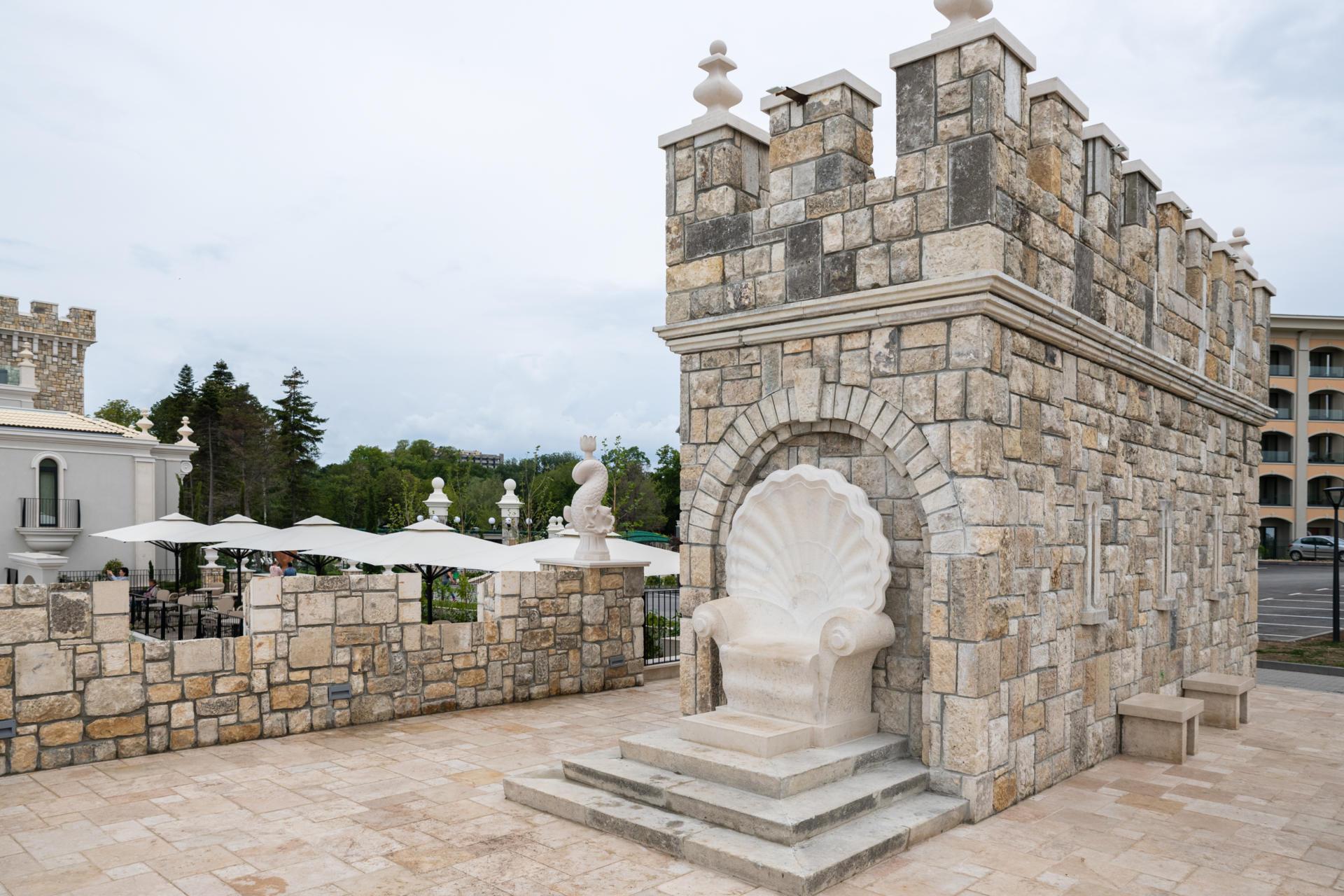The life story of Marco Chinka dates back to the 15th century. At that time, Venice and Genoa were the rulers of the Mediterranean. The Genoa citizens were granted permission by Constantine XI Palaeologus to control the straits by the Byzantium capital and their battles are marked by victories under the clever command of the military leader Giovanni Giustiniani. One of the soldiers in that fleet happened to be the young Tuscan Marco Chinka. The capabilities of the brave seaman did not remain unnoticed by Giustiniani. Within a short time, Marco became the commander of a commercial and military fleet. Fate sent him to the Black Sea, which at the time was plagued by numerous pirate attacks of Don Cossacks. Right here, in the heart of the St. Constantine and Helena resort complex, to the north of the ruins of the Byzantine fortress of Castritsi, Marco Chinka built a military front post.
If only the stone ruins could speak! To tell us about his military prowess, describe how the iron soldier and skillful navigator defeats the Cossack fleet and captures their clan leaders, and then shackles one of them into a cage hanging it from a tower at the military front post to serve as a warning to his enemies. If only the waves could speak! They would have told us about his Bohemian soul, the good wine, the good food, the beautiful women and sumptuous orgies sweetening his nights. Not accidentally, the coat-of-arms of Marco Chinka’s fleet depicted a scallop with two breathtaking mermaids luring us with their beauty. The traces of the Tuscan seafarer disappear with the occupation of Constantinople by Mehmed II, when Marco was dispatched to defend the Byzantine capital by sea.
And yet, he did not disappear completely. Near the burnt-down fortress of Castritsi appeared a new settlement, Kestrich - the present-day Varna living quarter of Vinitsa. It is the home of numerous direct descendants of the Tuscan seafarer – which is inevitable, after so many wild nights spent with the beautiful “mermaids” of Castritsi.
As regards the origin of the name “Villa Chinka”, it is disputed. Some believe it was named after Marco. Others claim it originated from the name of the stone, “chinka”, used as a building material. And yet others maintain it was named after the little songbirds, the finches (“chinkas” in Bulgarian) soaring in the sky above this beautiful beach.
